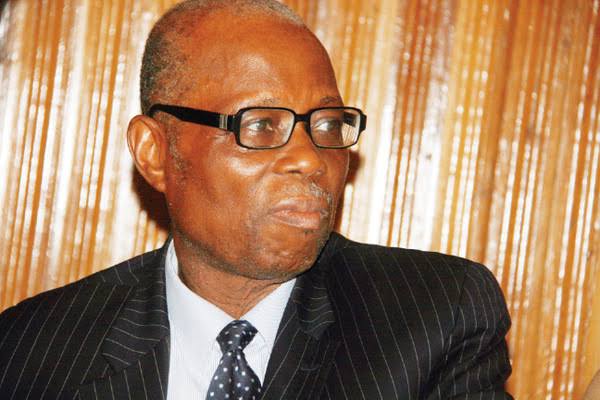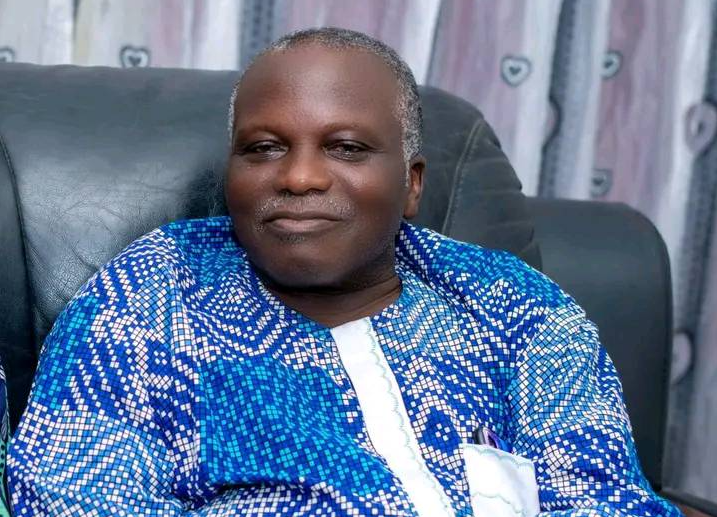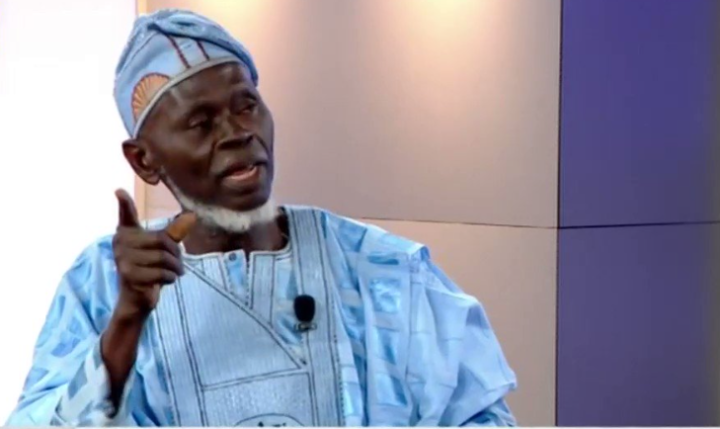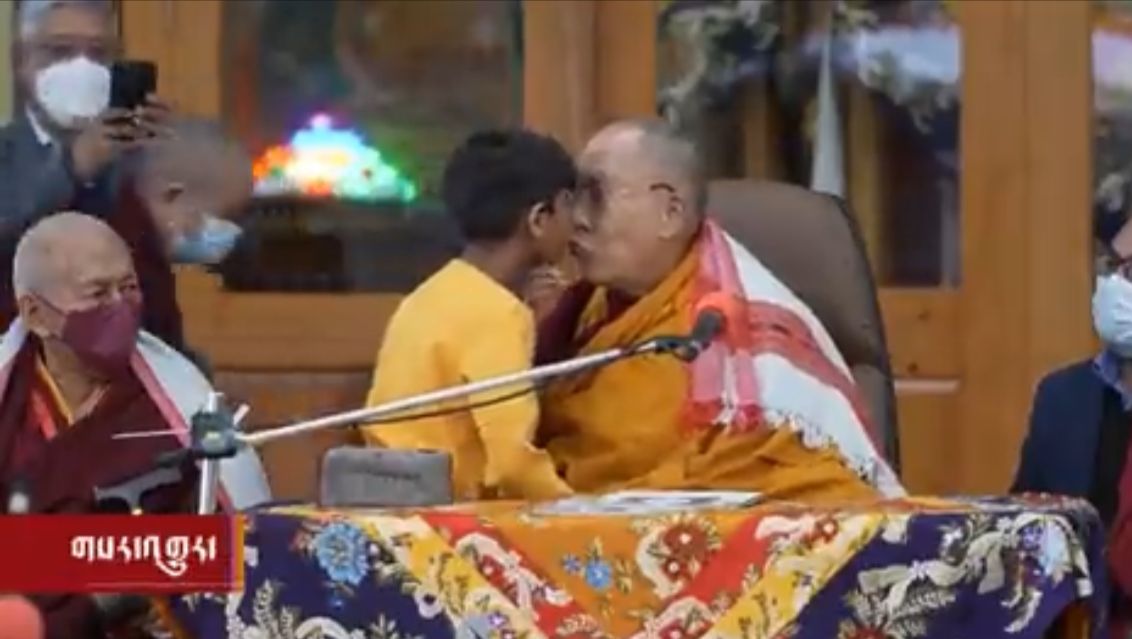In the early hours of Sunday, Nigeria lost Bola Ajibola, one of the most selfless individuals to ever take its public office.
Ajibola was a prolific writer, renowned administrator, a jurist of global acclaim and a man whose magnanimity in the corridors of power mirrors the teachings of his Islamic religion. It is only fitting that God beckoned on him during the holy month of Ramadan.
He was an impeccable example for public servants. Ajibola was said to have donated every penny of his salary as the attorney-general and minister of justice with a precise sharing formula that returns the money to the government and other charitable courses.
His effort attracted international accolades, from a Knight of the Order of British Empire (KBE) award by the late Queen Elizabeth to becoming a judge at the International Court of Justice (ICJ).
Advertisement
However, there probably would not have been the erudite, well-celebrated Ajibola of today had he not suffered a rude awakening during his wayward childhood.
EARLY LIFE
Bolasodun “Bola” Ajibola was born on March 22, 1934, into the royal family of the Owu Kingdom in Ogun state. His mother was the third wife of his father, who was a police officer.
Advertisement
Being the only son of one of the numerous wives in a polygamous home, Ajibola was pampered and soon worsened into a boy that he would later describe as “very rascally and always playing a lot of pranks.”
He attended Owu Baptist Day School, Ago Owu, for primary school education before advancing to Baptist Boys High School (BHHS), Abeokuta, for secondary school.
This stage was when Ajibola’s life took a positive swivel, and he sloughed the asininity of childhood, leading to the emergence of an embryo that matured into the over-achiever he grew up to be.
His mother dealt him a reality check when she angrily registered her rejection of his waywardness and threatened to pull her care and support from his life.
Advertisement
The threat jerked him from his slumber and kept him focused on what apparently would be the rest of his life.
“I was in school at Baptist Day Primary School. But she noticed that I was not performing as expected and she called me and said: You have now turned to become a bad boy. I am no longer worried because your sister is now doing very well,” he said in an interview with Vanguard.
“And what you can do, your sister will do something better for me. So you can go away, you can do whatever you like, and you are condemned! And you will be ignored!
“And it was perhaps the most important challenge in my life. It was from that moment that I stopped to be absent from school, and I started being very serious, studying, not only during the day but also at night.”
Advertisement
Ajibola graduated from BHHS in 1955 and was a year ahead of Moshood Abiola and two ahead of former President Olusegun Obasanjo.
Three years later, he was enrolled at Holborn College of Law, University of London, from where he graduated with a degree in law before he was called to the Bar at Lincoln’s Inn on November 27, 1962.
Advertisement
A SELFLESS ATTORNEY-GENERAL
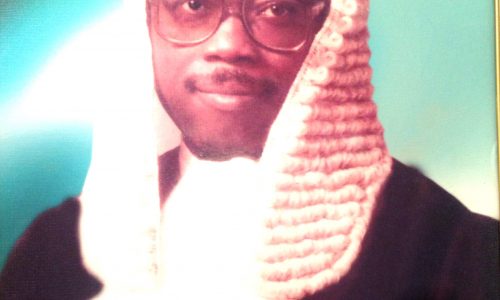
Advertisement
Ajibola returned to Nigeria after the completion of his study in the UK. He began law practice in the country and built a considerable reputation among the Nigerian league of legal luminaries.
By 1984, he was influential in the profession enough to become the president of the Nigerian Bar Association (NBA), a position he held for one year before the incoming military government snapped him up as its attorney-general and minister of justice.
Advertisement
He served in that capacity for six years under the Ibrahim Babangida-led administration.
Ajibola said he never took home a salary during his tenure as the minister of the federation. He gave back a percentage of his salary to the government and donated the rest to the NBA and other charitable courses.
“When I became the attorney-general and minister of justice, I did more. For six years, three months, twenty days and one and half hours, I was not taking my salary,” he said in a chat with Daily Trust.
“In my sharing formula, I gave 25 per cent of my salary to the NBA, 35 per cent to the government and 40 per cent to all other organisations involved in humanitarian activities. Those in want, the motherless homes and others, had the last share. I was doing all that.
“I was using the money to help the deprived, and I took no penny home from my ministerial salary. By that time, I had practised for over 23 years, and I was quite sufficiently satisfied with what I had earned for myself. I was still getting money from the dividends accruing from my investments and that was being paid to me in my office by the bank. Once I realised that I had enough to care for myself, I wasn’t prepared to have any extraordinary money.”
MENTORING OSINBAJO
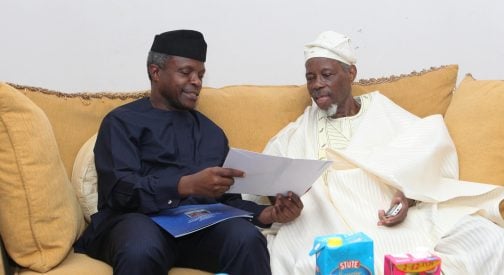
While serving as the minister of justice, Ajibola appointed a young Yemi Osinbajo as a special adviser. The protege, who was 30 years old at the time, would later become the vice-president of Nigeria.
According to Premium Times, Osinbajo credited some of his professional and personal virtues to his years of understudying Ajibola.
He mentioned instances that informed his principles against bribery and inducement as a public office holder.
“A foreign contractor had won a very lucrative contract from the federal government and went to give Prince Ajibola’s son, who was in the university in England, a brand new Golf car. The son then contacted his father, and this made Prince Ajibola so angry to the extent that I had to calm him down physically,” the vice-president said.
“Not only was the gift returned, but the conduct of the man was reported to the government of his country, and that government made a special apology to our own government and to Prince Bola Ajibola. I can also remember that the man in question also came to the ministry to apologise to the attorney-general.”
Ajibola also confirmed his influence on Osinbajo, saying he instilled punctuality and magnanimity in all his staff.
“Vice-President Yemi Osinbajo worked with me, and I taught them the importance of being punctual to work, honesty and selflessness,” he said in an interview with Vanguard.
“I was the timekeeper at the ministry of justice because I would always go round to check for those who were absent or late to work, and there were sanctions for defaulters.”
A JURIST OF INTERNATIONAL ACCLAIM
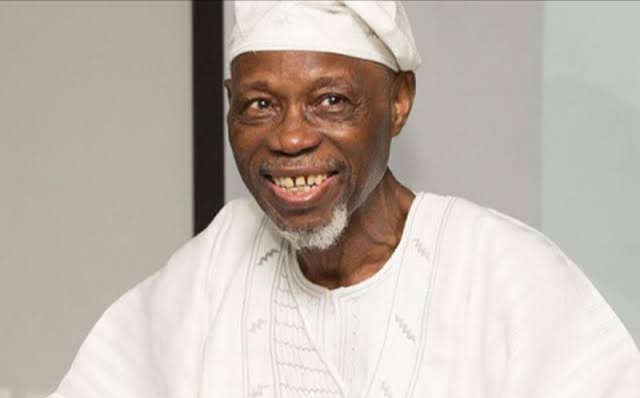
After leaving office in 1991, Ajibola moved to the International Court of Justice (ICJ), Den Hague, Netherlands. After a three-year stint at the World Court in 1994, he served as judge ad hoc of the World Court until 2022. Around that period, he also served as the Nigerian high commissioner to the UK between 1999 and 2002.
He was appointed judge of the constitutional court of the Federation of Bosnia and Herzegovina and also chairman of the Nigerian delegation to the Nigerian-Cameroon Mixed Commission on the Bakassi Peninsula.
He became the vice-president and later president of the World Bank Administrative Tribunal from 1994 to 2005 and headed the World Association of the World Jurists and Arbitrators, Ethiopia-Eritrea Boundary Dispute Commission.
Throughout his over 40-year-old career, he provided legal consultancy services to multinational companies like Avon Cosmetics Limited; Masms Solicitors and Co. of London; Exxon, Houston, Texas, USA and Arthur Anderson and Co., London and Lagos.
He was also gifted with deft usage of words on paper and authored various papers and articles on different legal subjects.
‘HE SOLD ALL HIS LAGOS PROPERTIES TO ESTABLISH CRESCENT UNIVERSITY’
After years of service, Ajibola finally got to work on a project that had been on his mind since he helped his alma mater BHHS create Bowen University in 2001.
He then leveraged the influence of the Islamic Mission for Africa, an organisation he founded in 1996, and Crescent University, Abeokuta, was born.
Ajibola sold all his properties to ensure he achieved his dream of establishing an institution that, according to him, is “not just out to produce brilliant best but global citizens”.
Osinbajo said the reason his former principal gave for selling all his assets to build the institution was that “wealth means nothing if it doesn’t positively impact the lives of others”.
Add a comment
